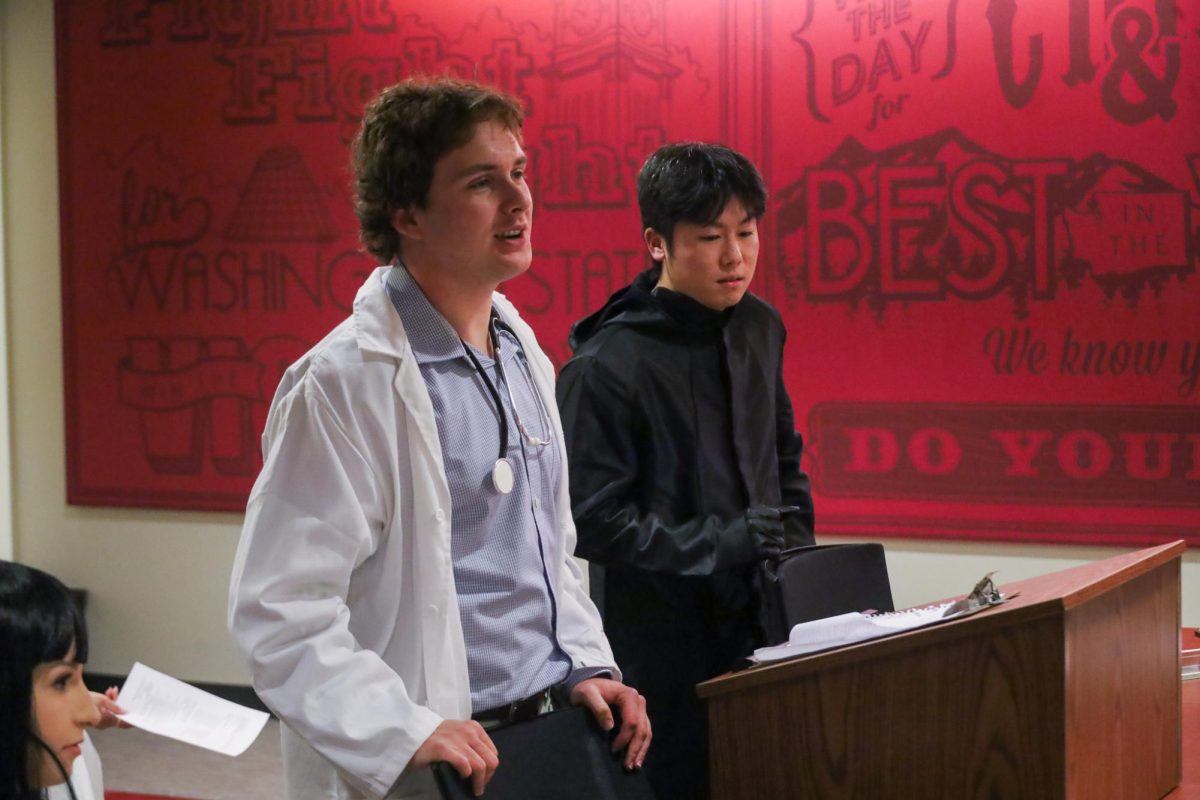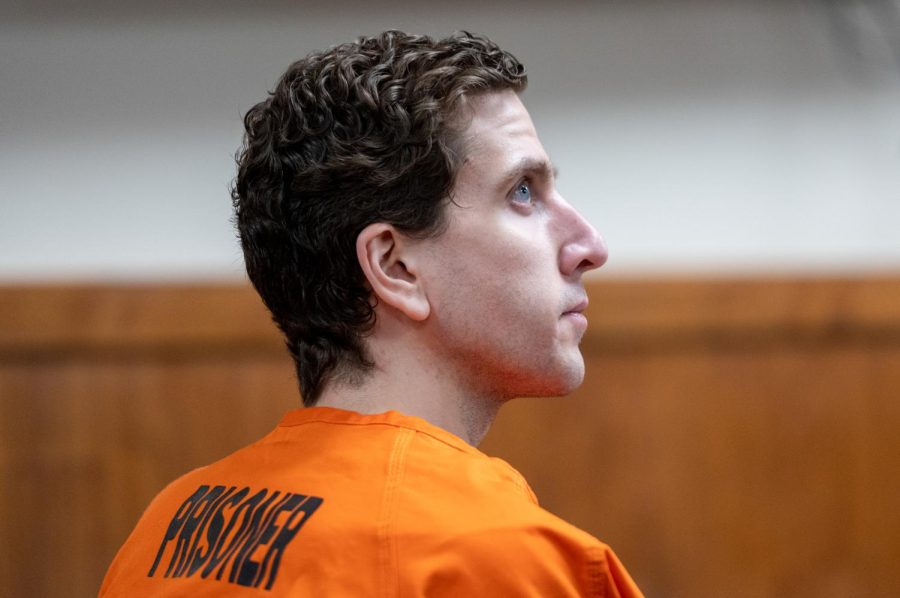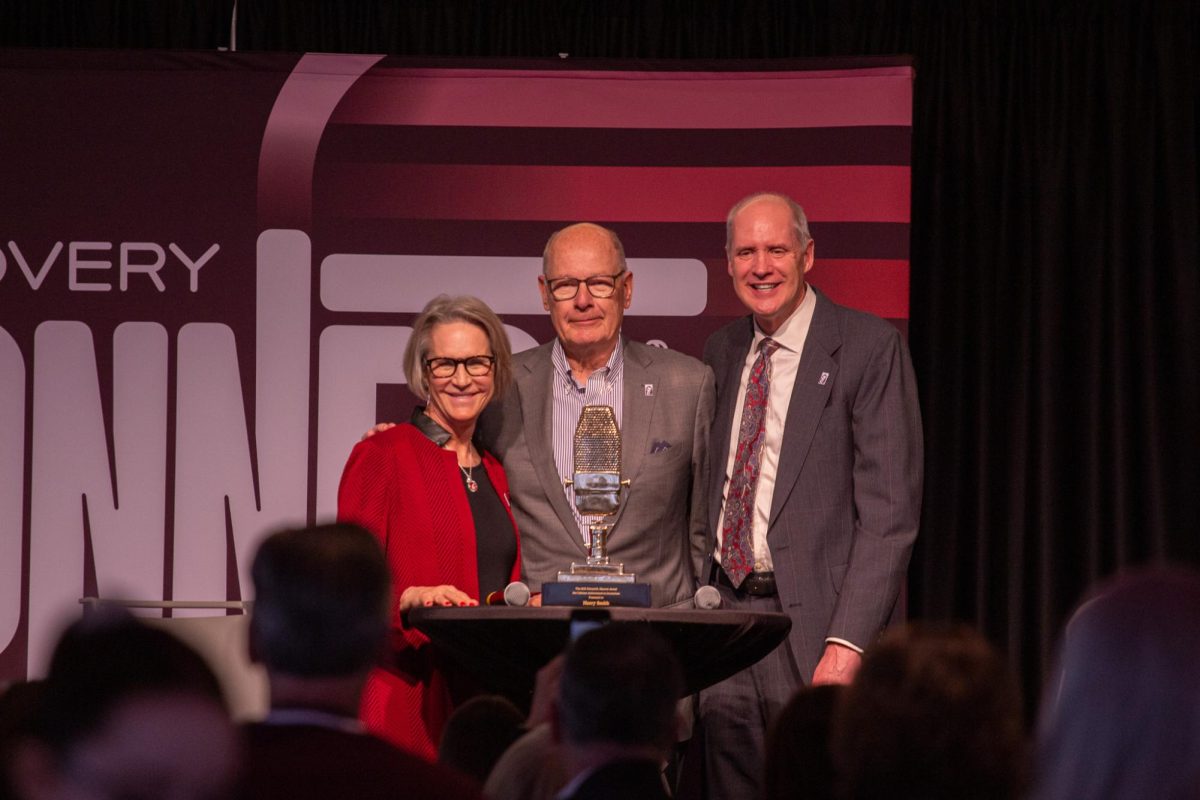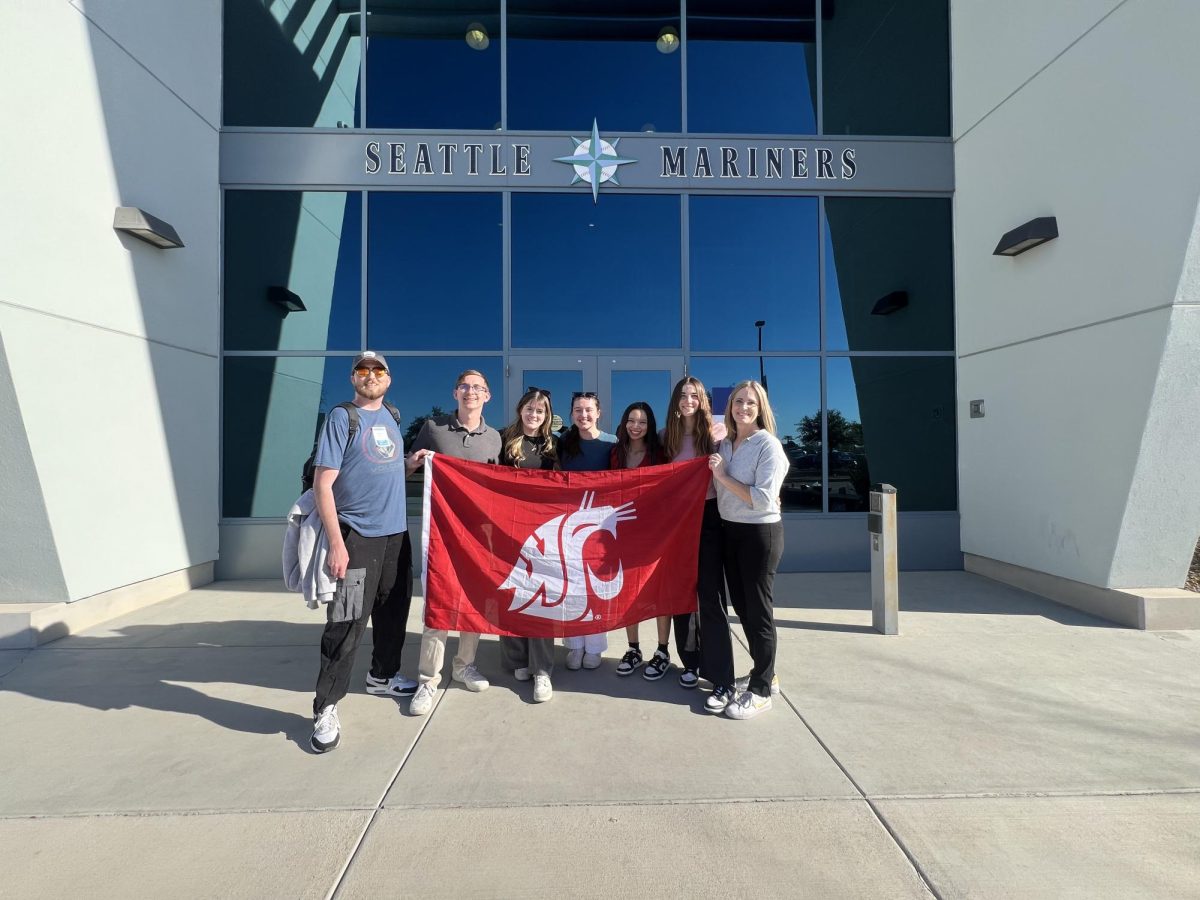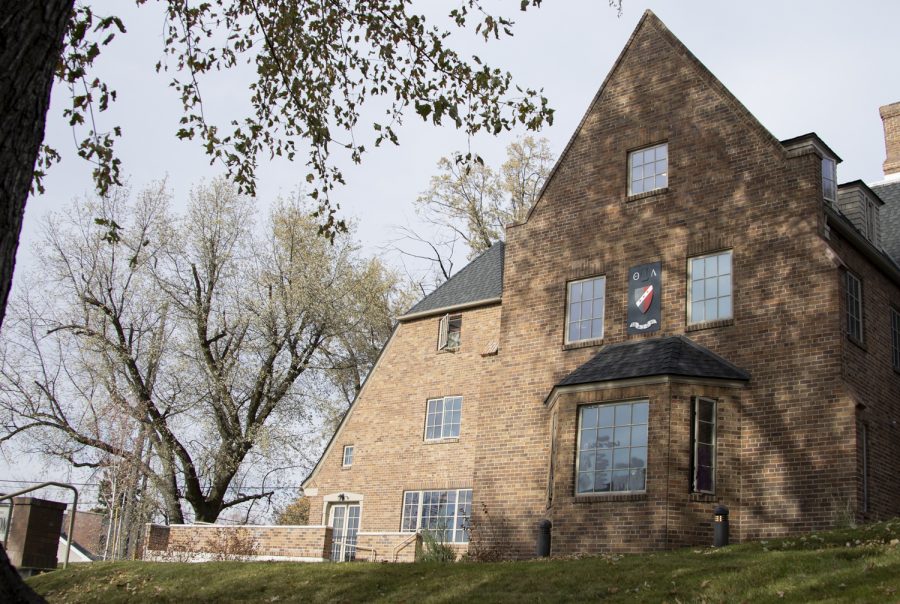The ASWSU senate hosted representatives from the Washington Student Association last Wednesday.
WSA President Collin Bannister and Brian Kim, Vice President of Finance spoke together to give a rundown of WSA, followed by a presentation of their proposal for the senate.
“[The Washington Student Association] is our student-run, non-profit lobbying association,” Bannister said. “Essentially, a coalition of our student governments, for students, by students, we lobby on important state issues.”
Bannister said the WSA represents the major public universities of Washington state, including some community and technical colleges.
“We get direct access to representatives and senators that you wouldn’t get without being in a broader association,” Bannister said. “We get weekly meetings with both the chair of higher education and the House and Senate and it’s really beneficial for our efforts.”
The WSA has been responsible for the passing of many House bills aimed at benefiting students, he said.
Working alongside ASWSU, the WSA increased the tuition allotment from the Washington College Grant from $300 million up to $428 million in 2023, increasing the number of recipients from around 65,000 students to more than 90,000 students across the state, Bannister said.
“If the dues are about $120,000 for all of the student governments combined, and the funding went up by $128 million from 2018 to 2024, that’s about a 106,000 percent return on investment,” Bannister said.
The WSA contributed to the passing of the tuition increase cap bill in 2010, the fentanyl overdose prevention bill in 2024, the Dream Act 2.0 in 2018 and the Religious Accommodations Act in 2019, Bannister said.
The WSA also advocated for the creation of campus voting hubs, increased K-12 comprehensive sex education, early registration for military affiliated students and a Native American student scholarship at WSU, he said
Bannister and Kim’s proposal involved a new student fee model that would allow for an additional optional due rate paid by students during class enrollment.
“There’s two ways that the WSA gets financed with our budget structure, which is membership dues and grants,” Kim said.
“Membership dues are our primary source of funding,” Kim said. “And for membership dues, the amount depends on enrollment on campus, and obviously since enrollment is declining, we are in an urgent-like dire need to increase the fees.”
With inflation causing higher costs on top of enrollment decreasing across the state, an increase in the membership dues is an imperative step to keeping the WSA alive, Kim said.
“Student associations failing are a real concern, because what it really does when it fails is that it takes away the collective bargaining power that you have as a student government,” Bannister said.
Bannister and Kim’s proposal for the senate outlined the key issues they hoped to focus on through their lobbying efforts at the state and federal level. These efforts include an expansion of college grants, supporting student basic need and mental health programs, advocating for the continuation of the WSU Native Student Scholarship, lobbying for student freedom of speech and representation, support for undocumented students, raising awareness for sexual assault prevention, increasing student childcare benefits, raising enrollment and supporting research.
“We have the best financial aid program that’s run by a state in the nation. Washington funds more dollars than any other state directly for tuition assistance, and I think a large part of that reason is that we have such a strong student association.” Bannister said.
Deputy Director of Legislative Affairs Bhargav Iyer announced Rep. Tina Orwall will be coming to WSU to give a presentation on sexual assault prevention policies from 3-4:30 p.m. on Nov. 12 in room 518 of the Smith Center for Undergraduate Education. Representative Vandana Slatter will also be attending the meeting.
“This is a major event. We rarely have representatives come and when they do it’s usually not student engagement,” Iyer said. “This gives us a unique opportunity to connect with legislators and advocate for student policies.”
University Affairs Director Sophie Kirov shared updates on Coug Thrive Fest, set to take place on Nov. 18. The event will feature yoga in the CUB Senior Ballroom, panels from student peer mentors, activities from the returning De-stress Fest and resource tabling in the CUB spine.
“We want to raise awareness for mental health, but also create a safe environment for students to share their experiences with their peers in front of admin or whoever else has access to those resources,” Kirov said.
Jonah Oh, Deputy Director of Student and Academic Affairs, announced the beginning of his ASWSU interview podcast project, in which various members of the senate and adjacent organizations will take part in interviews to help connect better with students.
Members of the senate also heard from guest speakers Cody Arguelles, ASWSU Veterans Committe chair and Travis Dudding, committee Vice Preisdent. Arguelles, an architecture major and retired Air Force Special Warfare veteran, was recently elected as the chair for the committee.
“In the past, I have recognized that this committee has been maybe misled, maybe mishandled and hasn’t been the most put together,” Arguelles said. “So to be honest, this whole year we’ve brought the whole cabinet together and focusing more on an identity thing.”
Arguelles said the committee serves a vast community of veterans and finding out how best to cater to their audience has been a struggle.
“Right now our biggest concern is Veteran’s Day,” Arguelles said. “It was brought to our attention that the typical thing to do on Veteran’s Day was to lay wreaths in memorial. However, remembering and honoring the dead is for Memorial Day, Veteran’s Day is for the living.”
Arguelles said there has been disgruntlement within the veteran’s community in regards to how Veteran’s day is celebrated.
“The overall mindset is that we don’t want to be planning our own appreciation,” Arguelles said. “It would be nice if the initiative came from the community rather than from us.”


